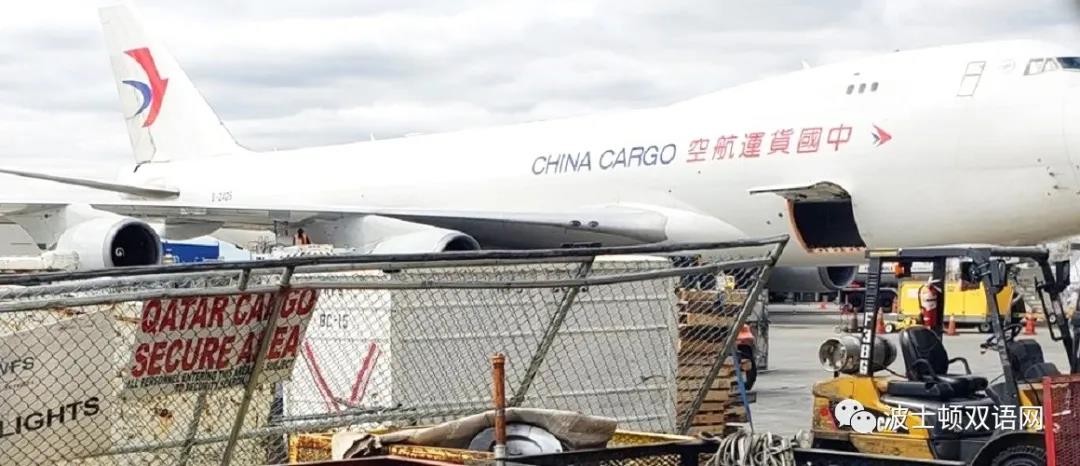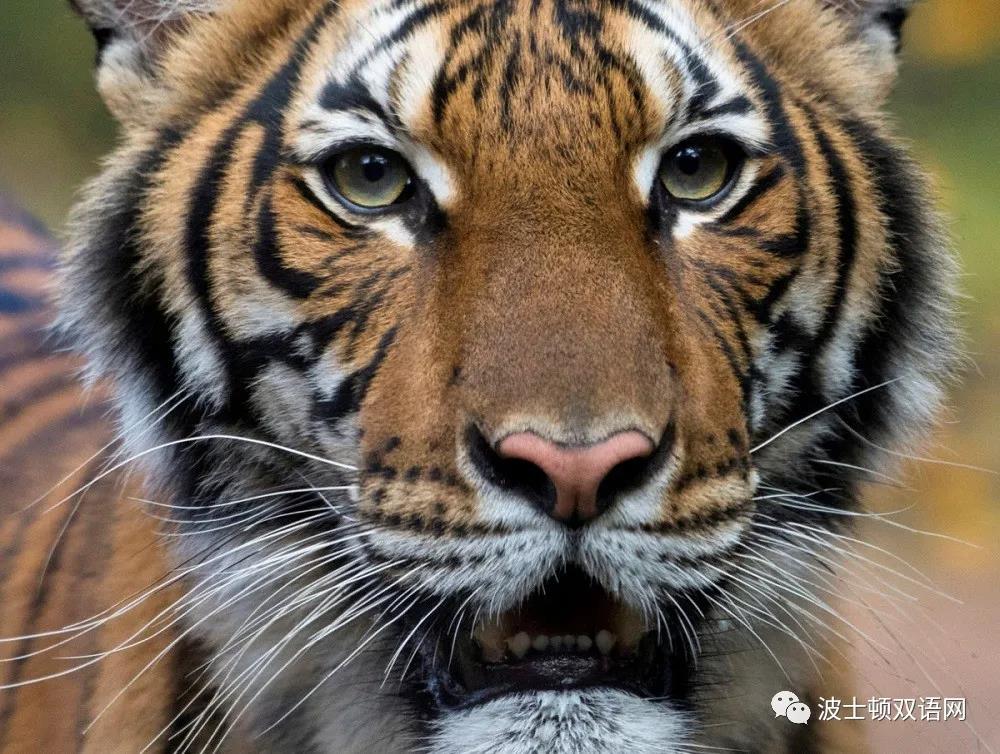【波士顿双语网2020年4月6日讯】纽约州长科莫在今天的新冠肺炎(COVID-19)疫情发布会中宣布,纽约州的住院人数和需要到特护病房(ICU)接受治疗的人数连续两天出现下降。据约翰霍普金斯大学的新冠肺炎全球疫情地图,截止美东时间今晚8点半,全美确诊患者人数达到36.66万,死亡10783人,其中有大苹果之称的纽约市就多达3485人死亡。
科莫表示,虽然纽约州今天新增4758名患者死亡,较前一天增加了599人,但仅比两天前新增的594人略有增加,显示出“曲线可能变平。”受到纽约的疫情可能得到初步控制消息的刺激,华尔街各主要指数今天的涨幅都超过7%,道琼斯指数大涨1627点。

中国捐赠给纽约州的1000台呼吸机以及口罩等医疗防护装备已经由中国货运航空公司的波音747飞机运抵肯尼迪机场,将由纽约州政府统一分配给该州各家医院。此外,约瑟夫及克拉拉·蔡基金会和马云基金会还向美国捐赠了100万个外科口罩,100万个KN95口罩和10万多副护目镜。
美国农业部(USDA)国家兽医服务实验室已经在纽约一家动物园的一只老虎中,证实了SARS-CoV-2(导致人类产生COVID-19的病毒)阳性。这是老虎首次感染COVID-19的实例。在动物园里的几只狮子和老虎表现出呼吸系统疾病的症状之后,从这只老虎(下图)的样品中取样并进行测试。

公共卫生官员认为,这些大猫在接触正在积极释放病毒的动物园工作人员后病倒了。自3月中旬以来,动物园已对公众关闭,第一只老虎已于3月27日开始生病迹象。预计所有这些大猫都会康复。没有证据表明动物园其他区域的其他动物也出现症状。
美国农业部和疾病预防控制中心正在监测情况,并努力为州和地方卫生部门以及州动物卫生官员提供支持。国家动物和公共卫生官员将带头确定是否应该对该动物园或其他地区的动物进行SARS-CoV-2病毒检测。美国农业部将这一发现通知世界动物卫生组织(OIE)。
患COVID-19的任何人在生病期间都应限制与动物的接触,包括宠物在内,应多加注意,就像与其他人一样。尽管在美国没有关于宠物患COVID-19的报道,但仍建议患COVID-19的人限制与动物的接触,直到了解有关该病毒的更多信息为止。如果生病的人必须照顾宠物或在动物周围,则应在互动之前和之后洗手。
人们可以将这种病毒带给动物吗?如果可以,哪些动物处于危险之中?
这是同类中的第一种情况。我们仍在学习这种新的冠状病毒及其传播方式。这个案例表明一个动物园的雇员将病毒传播给了老虎。需要进一步研究以了解不同动物是否以及如何受到COVID-19的影响。国家动物和公共卫生官员将继续与USDA和CDC密切合作以监视这种情况,并将在必要时进行其他测试。
如果有多只动物表现出症状,为什么只对其中一只进行测试?
仅对一只老虎进行了测试,因为要收集大猫的诊断样品需要全身麻醉。由于所有老虎和狮子都表现出相似的呼吸道症状,因此主治兽医认为,将全身麻醉的潜在风险限制在一只老虎以进行诊断符合动物的最大利益。
如果动物能够感染该病毒,它们能否将其还给人们?
目前,没有证据表明任何动物,包括宠物或牲畜,都可以将COVID-19感染传播给人们。
这一发现会促使对动物进行额外的测试吗?
不可以。这是一个不断发展的情况,但是,目前不建议对动物园或动物进行例行测试。公共和动物卫生官员可能会决定对某些表现出疾病迹象且已知感染该病毒的动物进行测试。有关如何做出这些决定的更多信息,请参见:https://www.aphis.usda.gov/animal_health/one_health/downloads/faq-public-on-companion-animal-testing.pdf
是否应该对任何表现出呼吸道疾病迹象的动物进行测试?
USDA和CDC不建议对这种病毒进行常规动物测试。由于情况在不断发展,因此公共和动物卫生官员可能会出于谨慎考虑而决定对某些动物进行测试。测试的决定将在地方,州或联邦公众和动物卫生官员之间共同做出。
如果我因冠状病毒(COVID-19)患病,应该避免与宠物或其他动物接触吗?
当您患COVID-19时,应该限制与宠物和其他动物的接触,就像与其他人一样。尽管在美国没有关于宠物患COVID-19的报道,但仍建议患COVID-19的人限制与动物的接触,直到了解有关该病毒的更多信息为止。如果可能,请在生病时让您的家庭成员中的其他动物来照顾您的动物。如果您感染了COVID-19,请避免与宠物接触,包括抚摸,依,、被亲吻或舔以及分享食物。如果您在生病时必须照顾宠物或在动物周围,请在与宠物互动之前和之后洗手。有关如何确保人和动物安全的更多信息,请访问https://www.cdc.gov/coronavirus/2019-ncov/daily-life-coping/animals.html。
如果我认为我的动物感染了病毒,该怎么办?
有关动物健康的任何问题,请致电兽医诊所。为了确保为家畜准备好兽医诊所,所有者应提前致电并安排医院。
USDA’s Confirmation of COVID-19 in a Tiger in New York
The United States Department of Agriculture’s (USDA) National Veterinary Services Laboratories has confirmed SARS-CoV-2 (the virus that causes COVID-19 in humans) in one tiger at a zoo in New York. This is the first instance of a tiger being infected with COVID-19. Samples from this tiger were taken and tested after several lions and tigers at the zoo showed symptoms of respiratory illness.
Public health officials believe these large cats became sick after being exposed to a zoo employee who was actively shedding virus. The zoo has been closed to the public since mid-March, and the first tiger began showing signs of sickness on March 27. All of these large cats are expected to recover. There is no evidence that other animals in other areas of the zoo are showing symptoms.
USDA and CDC are monitoring the situation and working to support the state and local health departments and state animal health officials. State animal and public health officials will take the lead in making determinations about whether animals, either at this zoo or in other areas, should be tested for the SARS-CoV-2 virus. USDA will notify the World Organisation for Animal Health (OIE) of this finding.
Anyone sick with COVID-19 should restrict contact with animals, out of an abundance of caution including pets, during their illness, just as they would with other people. Although there have not been reports of pets becoming sick with COVID-19 in the United States, it is still recommended that people sick with COVID-19 limit contact with animals until more information is known about the virus. If a sick person must care for a pet or be around animals, they should wash their hands before and after the interaction.
Can people give this virus to animals and, if so, what animals are at risk?
This is the first case of its kind. We are still learning about this new coronavirus and how it spreads. This case suggests that a zoo employee spread the virus to the tiger. Further studies are needed to understand if and how different animals could be affected by COVID-19. State animal and public health officials will continue to work closely with USDA and CDC to monitor this situation and will conduct additional testing if it is warranted.
If multiple animals were showing symptoms, why was only one tested?
Only one tiger was tested as the collection of diagnostic samples in big cats requires general anesthesia. Since all tigers and lions were exhibiting similar respiratory symptoms, the attending veterinarian felt it was in the best interest of the animals to limit the potential risks of general anesthesia to one tiger for diagnostics.
If animals can catch the virus, can they give it back to people?
At this time, there is no evidence to suggest that any animals, including pets or livestock, can spread COVID-19 infection to people.
Will this finding prompt additional testing of animals?
No. This is an evolving situation, however, routine testing of zoo or personal animals is not recommended at this time. Public and animal health officials may decide to test certain animals that are showing signs of illness and that are known to have been exposed to the virus. More information about how those decisions will be made is available here: https://www.aphis.usda.gov/animal_health/one_health/downloads/faq-public-on-companion-animal-testing.pdf
Should any animal showing signs of respiratory illness be tested?
USDA and CDC do not recommend routine testing of animals for this virus. Because the situation is ever-evolving, public and animal health officials may decide to test certain animals out of an abundance of caution. The decision to test will be made collaboratively between local, state or federal public and animal health officials.
Should I avoid contact with pets or other animals if I am sick from coronavirus (COVID-19)?
You should restrict contact with pets and other animals while you are sick with COVID-19, just like you would with other people. Although there have not been reports of pets becoming sick with COVID-19 in the United States, it is still recommended that people sick with COVID-19 limit contact with animals until more information is known about the virus. When possible, have another member of your household care for your animals while you are sick. If you are sick with COVID-19, avoid contact with your pet, including petting, snuggling, being kissed or licked, and sharing food. If you must care for your pet or be around animals while you are sick, wash your hands before and after you interact with pets. More information is available on how to keep people and animals safe at https://www.cdc.gov/coronavirus/2019-ncov/daily-life-coping/animals.html.
What should I do if I think my animal has the virus?
Call your veterinary clinic with any questions about your animal’s health. In order to ensure the veterinary clinic is prepared for the household animal, the owner should call ahead and arrange the hospital or clinic visit. Make sure to tell your veterinarian if your animal was exposed a person sick with COVID-19, and if your animal is showing any signs of illness. Veterinarians who believe an animal should be tested will contact state animal health officials, who will work with public and animal health authorities to decide whether samples should be collected and tested.
Could this affect tigers or other animals at other zoos across the United States?
There is no evidence of this virus affecting animals at any other facilities in the United States. However, anyone sick with COVID-19 should restrict contact with animals, including pets, during their illness, just as they would with other people. Although there have not been reports of pets becoming sick with COVID-19 in the United States, it is still recommended that people sick with COVID-19 limit contact with animals until more information is known about the virus. If a sick person must care for a pet or be around animals, they should wash their hands before and after the interaction.